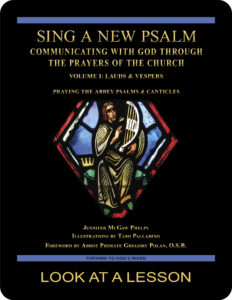rebuke
 In this week’s reading from the Gospel According to Matthew 8:23–27 (NABRE), Jesus rebukes the winds and seas, and everything calms. Exactly what is it that Jesus did? What is it about Jesus’ rebuke that even the winds and seas would obey?
In this week’s reading from the Gospel According to Matthew 8:23–27 (NABRE), Jesus rebukes the winds and seas, and everything calms. Exactly what is it that Jesus did? What is it about Jesus’ rebuke that even the winds and seas would obey?
The Greek word translated as rebuke is ἐπιτιμέω (epitimeo). This word literally means “to lay a value upon” and as such also means “to raise in price” in the sense of valuing something more highly. It also was the word used for legal punishment because punishment was seen as establishing the value of the crime committed. Finally, in the sense of rebuke or censure seen in the Gospel passage, it refers to placing negative value or disapproval on someone’s actions.
Jesus’ rebuke is his statement that he disapproves of what the weather was doing. This is strange for a few reasons. First, Jesus is of the opinion that he gets a say over what the weather does. Second and more bizarrely, the weather seems to agree.
related topics: authority; religious law
you also may like Volume I of our Psalms study
 Sing a New Psalm: Communicating with God Through the Prayers of the Church—Volume I: Lauds & Vespers provides an in-depth look at Psalms prayed in morning and evening liturgies. (Volume II, set for publication in 2024, looks at Vigils, Day Prayer & Compline.) The study is based on The Abbey Psalms and Canticles, a translation prepared by the Benedictine monks of Conception Abbey and published by the United States Conference of Catholic Bishops (USCCB). Click on the book’s cover to view a sample lesson.
Sing a New Psalm: Communicating with God Through the Prayers of the Church—Volume I: Lauds & Vespers provides an in-depth look at Psalms prayed in morning and evening liturgies. (Volume II, set for publication in 2024, looks at Vigils, Day Prayer & Compline.) The study is based on The Abbey Psalms and Canticles, a translation prepared by the Benedictine monks of Conception Abbey and published by the United States Conference of Catholic Bishops (USCCB). Click on the book’s cover to view a sample lesson.
 Click on the picture of the statue of Moses with horns (above) to learn more about Lost in Translation. A new entry is archived each Monday. Contact us to receive Lost in Translation by email every week. You may use any of the contact links on our website to ask Matthew a question.
Click on the picture of the statue of Moses with horns (above) to learn more about Lost in Translation. A new entry is archived each Monday. Contact us to receive Lost in Translation by email every week. You may use any of the contact links on our website to ask Matthew a question.
